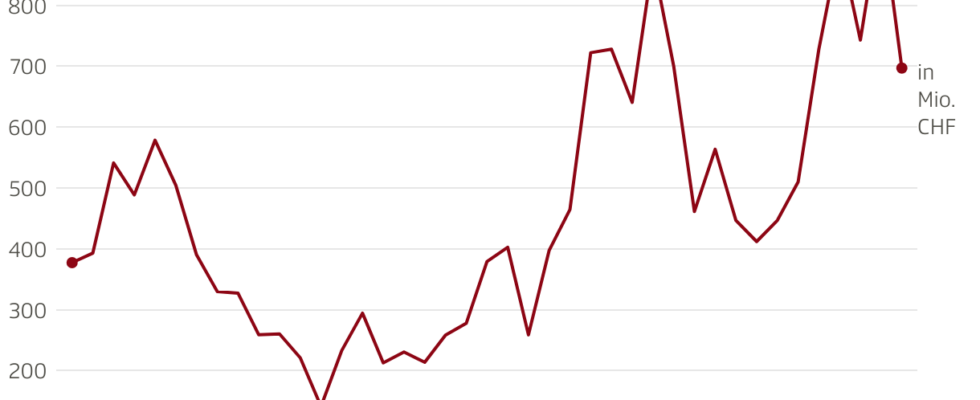- Swiss companies exported around 27 percent less war material in 2023 than in the previous year.
- Based on approvals from the State Secretariat for Economic Affairs (Seco), war material worth 696.8 million francs reached 58 countries.
- This means that war material exports have fallen by almost 260 million francs.
In 2022, war material was exported for 955 million francs. Total Swiss goods exports in 2023 were around 1.2 percent lower than in the previous year. Exports of war material also recorded a decline.
Larger transactions in the reporting period were the exports of various types of ammunition and ammunition components to Germany (98.1 million francs), of wheeled armored vehicles and their spare parts to Denmark (54.6 million francs) and specific ammunition for air defense systems to Saudi Arabia (40 million francs). The five main buyer countries were Germany, Denmark, the USA, Saudi Arabia and Romania.
According to André Mittmann from Seco, the reason for this decline is that the war material export statistics are heavily influenced by individual large businesses. In 2022, two large deals in the areas of anti-aircraft defense and armored vehicles were actually exported.
In-demand industrial products entering Russia
The export of other goods, such as microprocessors, receives less attention. Such products have already been found in Ukraine as components of Russian weapons. Jürgen Böhler confirms this, he heads the licensing department for export control of industrial products at Seco.
The Ukrainian authorities provided Seco with photos of such electronic components found. “We then clarify when these goods were manufactured and through which channels they presumably found their way into weapon systems,” explains Böhler.
Such components can also be found in toys or construction machinery. And they don’t go directly to Russia either, because that’s where the sanctions take effect. Rather, the goods first go to another country and from there. Seco names 11 risk countries, including Serbia, Turkey, China, Uzbekistan and Tajikistan. And the Swiss customs statistics also clearly show that some of these countries have been importing significantly more such electronic components since the outbreak of the war in Ukraine than before.
Ban deliveries or have them approved?
“There is a problem with goods for weapons-capable systems and we are trying to take countermeasures,” says Böhler from Seco. By this he means an exchange of information with Swiss manufacturing companies, but also with other countries.
Switzerland has already prevented deliveries, says Böhler. So why not ban it or make it subject to approval? “The sanctions are directed against Russia and not against the neighboring states,” said Böhler.
But buyers will soon have to sign contractual clauses that the goods will not go on to Russia, as the EU’s 12th sanctions package requires. The responsibility lies with the manufacturers. For new orders and deliveries to critical countries, Seco should be called in for further checks.
